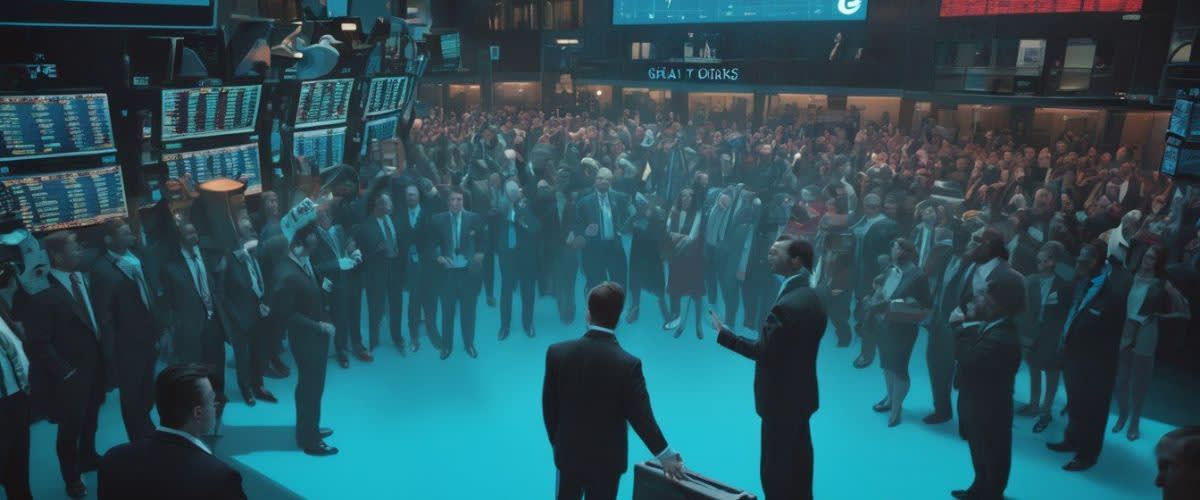Exposure in trading: a guide for traders

Navigating the financial markets requires a deep understanding of exposure. It's a term that's common in trading circles, but grasping its full meaning is crucial for anyone looking to make informed decisions in the world of trading. In this article, we'll unpack what exposure is, provide a clear example, discuss its significance for traders, and highlight how you can enhance your trading skills to manage exposure effectively.
Exposure, what is it?
In financial trading, exposure refers to the degree to which a trader or investor is affected by changes in market prices. It's a measure of risk, representing the amount of money a trader stands to lose or gain from market movements. Exposure is not just limited to the potential downside; it also encompasses the potential for profit, making it a double-edged sword.
An example of exposure in trading
Let's consider a simple example. Imagine a trader who buys 100 shares of Company XYZ at $10 each. The total investment is $1,000, which is now the trader's exposure to Company XYZ. If the stock price rises to $12, the exposure remains $1,000, but the value of the investment increases to $1,200. Conversely, if the stock drops to $8, the exposure hasn't changed, but the investment's value has decreased to $800.
Now, let's add a layer of complexity. Suppose the trader uses leverage to purchase these shares, borrowing funds to increase the potential investment return. If the trader borrows $900 and invests $100 of their own money to buy the shares, their exposure increases significantly. A price drop of $2 per share would not only reduce the investment value but also amplify the loss due to the borrowed funds that need to be repaid.
Why exposure is important for traders
- Risk management: Understanding exposure is fundamental to managing risk. Traders need to know how much of their capital is at risk and how market fluctuations can affect their portfolios.
- Leverage: Leverage can magnify exposure, increasing both potential gains and losses. Traders must be aware of the implications of using leverage and manage it carefully.
- Diversification: By knowing their exposure in different markets or assets, traders can diversify effectively, spreading risk to avoid significant losses from any single investment.
- Portfolio performance: Monitoring exposure helps traders adjust their portfolios to align with their risk tolerance and investment goals.
- Regulatory compliance: For professional traders and institutions, understanding exposure is also a regulatory requirement, ensuring they do not take on excessive risk.
Managing exposure in trading
Managing exposure is a skill that can be achieved with education and practice. Here are steps to skill up in managing your trading exposure:
- Education: Start with learning the basics of financial markets and instruments. Understand the concepts of leverage, margin, and diversification.
- Tools and resources: Utilize risk management tools and resources offered by trading platforms. Many brokers provide calculators and analytics to help you assess your exposure.
- Practice: Use demo accounts to practice trading without real financial risk. This can help you understand how exposure changes with market movements.
- Continuous learning: Stay updated with market trends and trading strategies. The more informed you are, the better you can manage your exposure.
- Professional guidance: Consider seeking advice from financial advisors or trading experts, especially when dealing with complex instruments or large amounts of capital.
Exposure in trading is a measure of potential risk and reward. It's a critical concept that affects every trade and investment decision. By understanding and managing exposure, traders can protect their capital, optimize their performance, and achieve their financial objectives.
Ready to take control of your CFD trading exposure?
Start by Skilling up with comprehensive trading courses, staying informed about market dynamics, and practicing disciplined risk management. Remember, successful trading is not just about making profits; it's also about managing exposure to safeguard those profits.
Past performance does not guarantee or predict future performance. This article is offered for general information and does not constitute investment advice. Please be informed that currently, Skilling is only offering CFDs.










